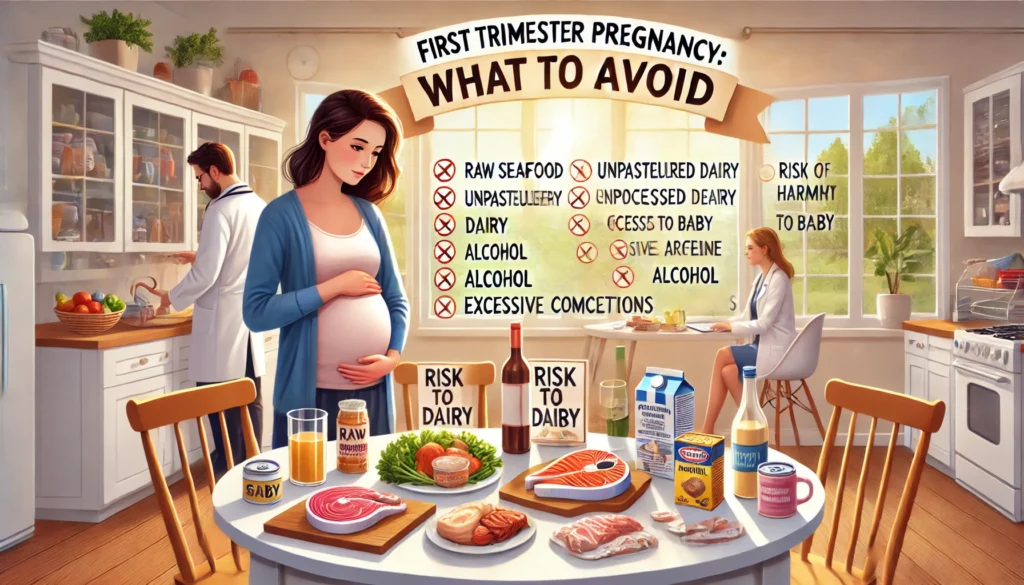First Trimester Pregnancy: What to Avoid
The first trimester of pregnancy is a crucial and sensitive period when the baby begins to form and develop major organs. Proper care and precautions during this stage will help ensure the health of both the mother and the baby. Below are important things that expectant mothers should avoid during the first three months of pregnancy.

1. Foods to Avoid
A healthy diet plays a vital role in protecting the mother’s health and the baby’s development. Pregnant women should avoid the following:
- Raw or undercooked foods: Raw or undercooked meats, poultry, seafood, unpasteurized cheese, and raw eggs may contain harmful bacteria that can affect the fetus.
- High-sodium foods: Consuming too much salt can lead to high blood pressure, which may negatively impact both the mother and the baby.
- Alcohol and stimulants: Alcohol, beer, and other stimulants can seriously harm fetal development and should be completely avoided.
- Caffeine: Limiting caffeine intake is crucial to reducing the risk of miscarriage and other pregnancy complications.
2. Activities to Limit
During the first trimester, pregnant women should be cautious about their daily activities to ensure the safety of the baby:
- Strenuous physical activities: Avoid activities that involve excessive physical exertion or high-risk sports that could cause injury.
- Standing or sitting for too long: Prolonged standing or sitting can cause swelling and poor blood circulation, leading to discomfort.
- Exposure to harmful chemicals: Limit exposure to chemicals such as pesticides, paint, solvents, and strong cleaning agents.
3. Beauty and Self-Care Precautions
While personal care is important, expectant mothers should be mindful of the following:
- Hair treatments: Avoid chemical treatments such as hair dyeing or perming during the first trimester to prevent potential risks to the fetus.
- Nail polish: Certain nail polishes contain harmful chemicals that can pose a risk; choose pregnancy-safe products instead.
- Saunas and hot baths: Avoid prolonged exposure to high temperatures, such as in saunas or hot baths, as they can raise body temperature and potentially harm the baby.
4. Sexual Activity
If there are no specific medical restrictions, sexual activity can continue during the first trimester. However, it should be gentle and cautious. Avoid intercourse if there are signs of miscarriage risk, vaginal bleeding, or a history of preterm birth.
By following these precautions, expectant mothers can navigate the first trimester safely and healthily, laying a strong foundation for the baby’s development in the later stages of pregnancy.






